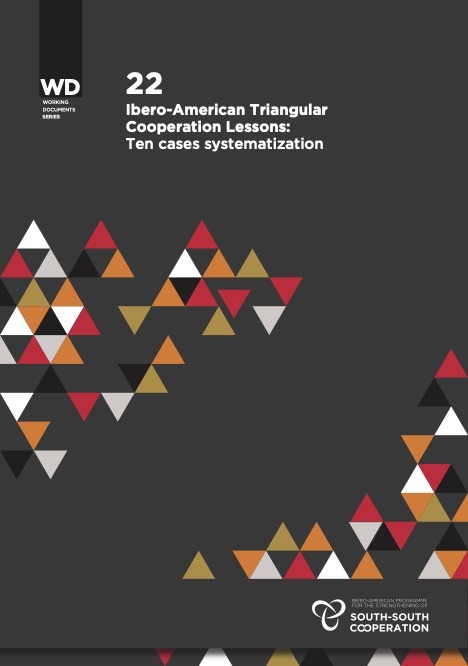Undeniably, Triangular Cooperation has gained an ever more relevant role in the international cooperation agenda in the last several years. Although it is not a new cooperation modality, the 2030 Agenda and the outcome document of the Second United Nations High-Level Conference on South-South Cooperation (PABA+40) have recognized and emphasized this triangular cooperation’s potential for contributing to the achievement of the Sustainable Development Goals’ continuance (SDG).
Ibero-American countries together with an increasing number of partners have been the pioneers in supporting Triangular Cooperation, which is currently consolidated as part of strategies and cooperation programmes in the region. The Ibero-American Program for the Strengthening of South-South Cooperation (PIFCSS for its acronym in Spanish) on its side, has supported this process from the start, wagering on strengthening its conceptualization, practices, and management processes involved in each of the stages of the projects. This document is framed by this context, as part of a collection of Working Documents and aligned to the third PIFCSS’ strategic goal: “Improving Ibero-American triangular cooperation management”.
The study was undertaken based on the systematization of 10 Ibero-American experiences, to analyze how triangular cooperation projects are put into practice – mainly in the identification, negotiation, and formulation stages- and taking from the evidence those elements which would enhance the management of this modality.
Elements such as the origin of the project’s demand, recipients’ participation and leadership in the entire process, the relationship between partners, governance analysis, bureaucratic processes, and internal and external communication of the projects, are part of the present study. Additionally, it identifies good practices in the management of Triangular Cooperation initiatives.

